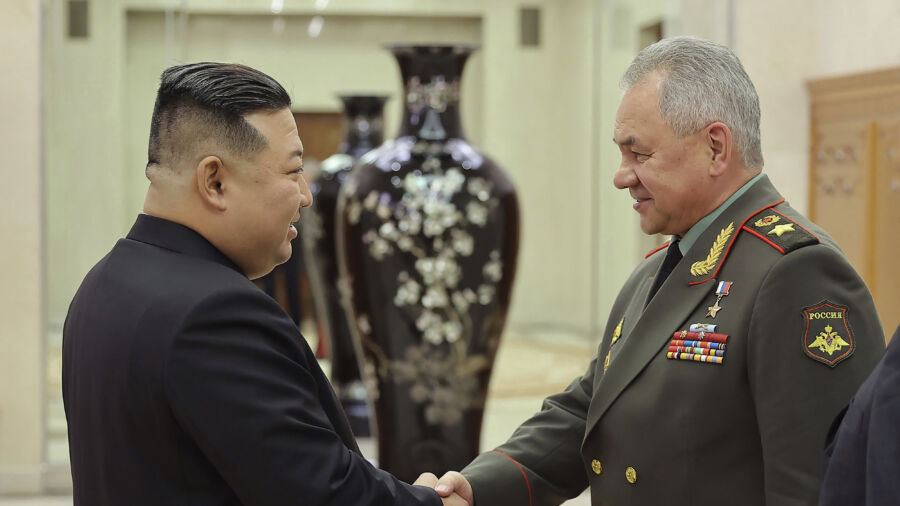Russia is now using North Korean ballistic missiles in its war against Ukraine, according to the White House.
Moscow recently acquired the missiles and began to strike targets in Ukraine with them in late December, White House National Security Council spokesman John Kirby told reporters on Jan. 4.
“Our information indicates that the Democratic People’s Republic of Korea recently provided Russia with ballistic missile launchers and several ballistic missiles,” Mr. Kirby said, using the official name for communist North Korea.
The missiles have a range of about 550 miles, according to declassified U.S. intelligence, and allow Russian forces to strike well within Ukraine while avoiding the dangers posed by closer fighting.
Russia has thus far used the missiles to strike within Ukraine’s Zaporizhzhia region in the southeast of the embattled country, Mr. Kirby said.
Zaporizhzhia is a critical area for both Russian and Ukrainian forces and holds several critical rail and port hubs. It sits between Russia and the only land bridge into occupied Crimea.
Mr. Kirby described North Korea’s arms transfers to Russia as a “significant and concerning escalation.”
The United States will impose additional sanctions against those facilitating the arms deals, he said.
North Korea Fueling
The latest arms shipment suggests that Moscow is overcoming at least part of its struggle to replenish supplies for its war in Ukraine. The deal also follows significant sales of munitions from Pyongyang last fall.
The White House announced in October that the North Korean regime had delivered at least 1,000 cargo containers of ammunition to a Russian munitions depot about 180 miles from the border with Ukraine.
Mr. Kirby said at the time that Pyongyang was seeking military assistance from Russia in exchange, “including fighter aircraft, surface-to-air missiles, armored vehicles, ballistic missile production equipment, and other materials and other advanced technologies.”
That exchange followed several summits between North Korean and Russian officials, including a visit to Moscow by North Korean leader Kim Jong Un, a visit to Pyongyang by Russian Defense Minister Sergei Shoigu, and another delegation of Russian officials to North Korea.
Intercepted letters from Russian leader Vladimir Putin and Mr. Kim, revealed by the United States in August, suggested that Russia and North Korea were engaged in secret negotiations for arms at the time.
Russia Seeks Missiles from Iran
Mr. Kirby also said that Russia was continuing its attempts to purchase close-range missiles from the Islamist regime in Iran.
The White House has warned about growing support for Russia from Iran and North Korea since February of last year.
In May, Mr. Kirby highlighted an arms deal between Moscow and Tehran that he described as “unprecedented.”
That deal saw Iranian officials seek to trade suicide drones for Russian fighter jets, combat helicopters, and advanced radar capabilities.
Mr. Kirby said that a Russia-Iran deal had not yet been completed but that the United States was “concerned that Russia’s negotiations to acquire close-range ballistic missiles from Iran are actively advancing.”
Russia has received hundreds of drones from Iran, as well as drone production-related equipment, Mr. Kirby said.
The Biden administration has accused Tehran of providing Russia with materials to build a drone manufacturing plant east of Moscow.
Mr. Kirby said the United States would raise its concerns about the arms deals at the U.N. Security Council, which Russia is a permanent member of, and would look to impose additional sanctions against individuals and entities facilitating weapons transfers with Russia.
From The Epoch Times

